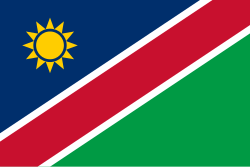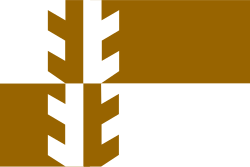| Flag | Date | Use | Description |
|---|
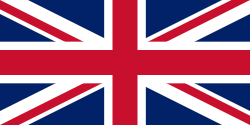 | 1878–1990 | The Union Flag, also commonly known as the Union Jack. Used as the flag of the United Kingdom | A superimposition of the flags of England and Scotland with the Saint Patrick's Saltire (representing Ireland) |
 | 1878–1910 | Cape Colony | A blue ensign defaced with the shield-of-arms of Cape Colony |
 | 1910–1912 | Merchant flag of the Union of South Africa | A British Red Ensign with the shield of the coat of arms of the Union of South Africa |
 | 1910–1928 | State ensign of the Union of South Africa | A British Blue Ensign with the shield of the coat of arms of the Union of South Africa |
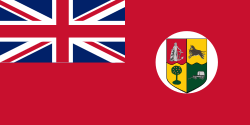 | 1912–1951 | Merchant flag of the Union of South Africa | A British Red Ensign with the shield of the coat of arms of the Union of South Africa on a white roundel |
 | 1928–1982 | Flag of South Africa | Orange, white, and blue horizontal stripes, on the white stripe, a backwards Union Flag towards the hoist, the Orange Free State flag hanging vertically and the flag of Transvaal, towards the fly. Used for both the Union and later Republic of South Africa |
 | 1982–1990 | Flag of South Africa | The flag using a lighter shade of "Solway" blue as specified by the South African government in 1982 |
 | 1878–1910 | Flag of the governor of the Cape Colony | |
 | 1910–1931 | Flag of the governor-general of South Africa | |
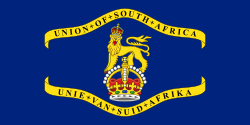 | 1931–1952 | Flag of the governor-general of South Africa | |
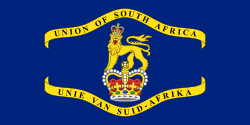 | 1952–1961 | Flag of the governor-general of South Africa | |
 | 1961–1984 | Flag of the state president of South Africa | |
 | 1984–1990 | Flag of the state president of South Africa | |
 | 1878–1961 | The royal standard of the United Kingdom (except Scotland) | A banner of the sovereign's arms, the royal coat of arms of the United Kingdom |
 | 1901–1928 | Standard of Queen Alexandra, consort of Edward VII | The royal coat of arms of the United Kingdom impaled with the arms of the king of Denmark |
 | 1910–1953 | Standard of Queen Mary, consort of George V | The royal coat of arms of the United Kingdom impaled with the arms of Prince Francis, Duke of Teck (the Queen's father), and Prince Adolphus, Duke of Cambridge (the Queen's maternal grandfather) |
 | 1936–1961 | Standard of Queen Elizabeth, consort of George VI | The royal coat of arms of the United Kingdom impaled with the arms of the Earl of Strathmore: "bows" and "lions" |
 | 1952–1961 | Standard of Prince Philip, consort of Elizabeth II | A banner of the coat of arms of the Duke of Edinburgh, 1st quarter representing Denmark, 2nd quarter Greece, 3rd quarter the Mountbatten family, 4th quarter Edinburgh |
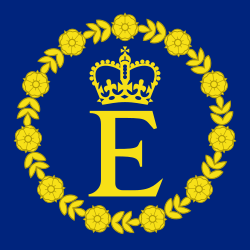 | 1952–1961 | Personal flag of Elizabeth II, used by the Queen in her capacity as Head of the Commonwealth | A crowned letter 'E' in gold, surrounded by a garland of gold roses on a blue background |
